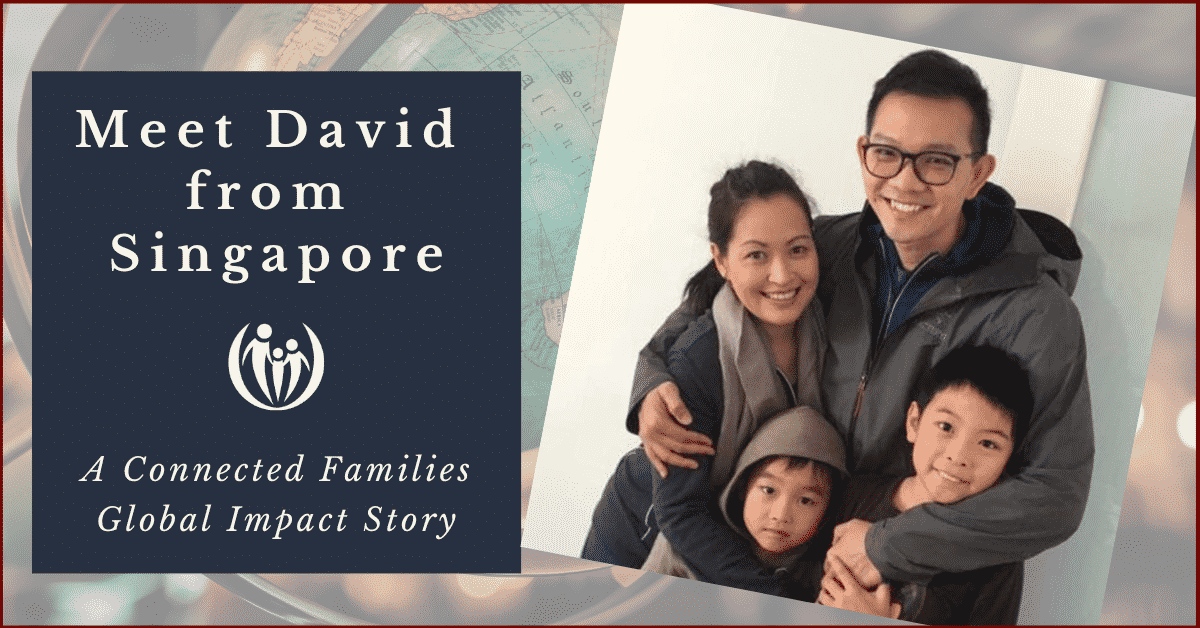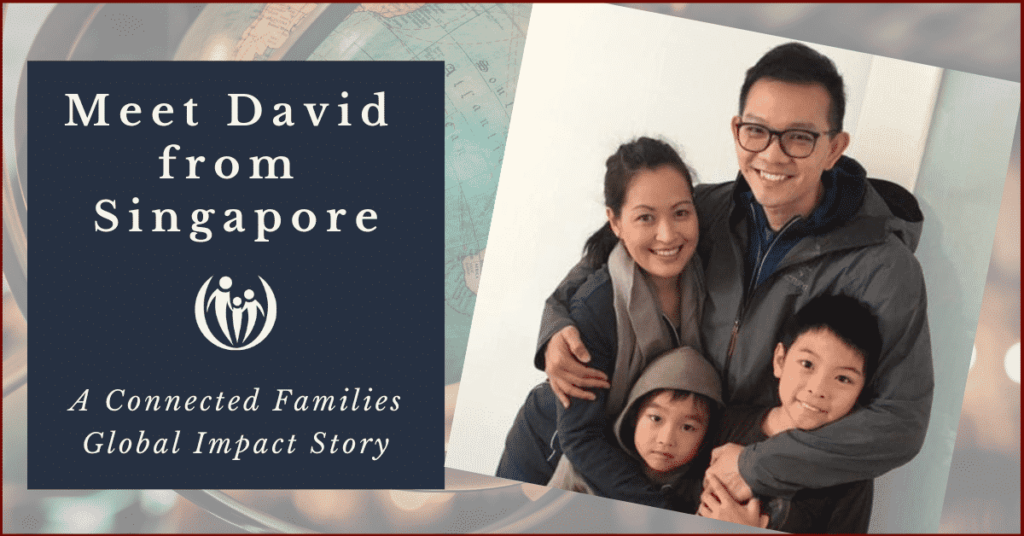
Meet David from Singapore

For nearly twenty years, Connected Families has been equipping and empowering parents to lead their families with grace. As a tumultuous 2020 comes to an end we are excited to introduce you to families around the world who are embracing the Connected Families Framework in their home. Because of our generous donor team, we are able to continue transforming, equipping, and inspiring families all over the globe!
Come along as we meet David, who is leading a small group in Singapore. His small group is learning to lead their family with grace by studying the framework and how it can help them in the context of the culture in which they live.
What is the primary culture in your family’s home? And in your community?
Singapore places great emphasis on education. There is a culture of ‘kiasu’ (paranoia) when it relates to a child’s education and future. Although we now call Singapore our home, we grew up in Malaysia, so we have the benefit of knowing that life can be different. We try not to get too caught up in kiasu culture, but it’s so pervasive that it’s hard to resist. Sometimes we find ourselves getting anxious about our child’s performance compared to others.
How does the CF Framework fit within your culture?
This is something that members of the group had raised – are the CF teachings too “Western”? Would they fit within our Asian culture? We had the privilege of raising this question in a small group zoom session with Jim and Lynne, and Jim had pointed out that sin is sin. Idolatry is idolatry. Idolizing academic success looks pretty much the same in any culture. And in applying the CF principles, we found that our children could learn what it means to be called and capable. To be treated respectfully and understand natural consequences. In fact, we now see them starting to take more responsibility for their own homework and grades.
Have you had to adjust or tweak the CF Framework to fit your cultural context?
Because I studied and worked in the US, I probably found it a little easier to adopt the framework. Singapore is quite a cosmopolitan/westernized country anyway. Whenever I struggle I think it’s because I haven’t fully surrendered this area of my life to God. It’s not that the concepts or framework are a poor fit.
But thinking on behalf of the other members of the small group, some of whom were educated locally, it may be easier for them to visualize themselves applying the concepts if they could see examples/expressions of the concept in colloquial (familiar) language.
In your experience, what has been the value of the framework from a culture perspective?
To be able to see that as long as we call ourselves Christian, we must be willing to re-write our approach to parenting with a more biblical script.
Do you have any stories related to the framework and making it work in your culture?
Once, during a tense moment I was trying to get my child to do his math during home-based learning. I became aware of the physical sensation that precedes losing my temper (as the book Discipline That Connects had taught me) and so I decided to kneel. Right there in front of my son. And I started to pray. It was my way of going low and slow. And I could feel God’s calming presence descending on me. And it helped prevent a meltdown.
Want to learn more about these concepts? Download our one-hour recording of a Discipline That Connects workshop.

